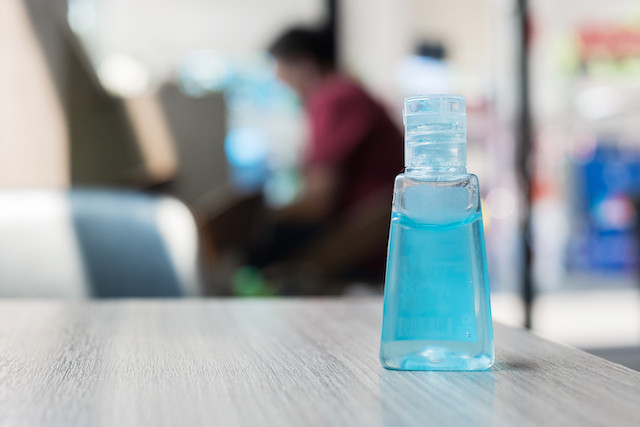The doctor, who agreed to speak with Delano on an anonymous basis, said that since Monday morning she had been telephone triaging to avoid having people come to the practice, but “we’re getting a lot of calls that could easily be covid-19”.
Following the telephone consultation, she said they may bring in people who need to be assessed if they don’t have respiratory symptoms, although “someone came with fever who shouldn’t have.”
In total, she said they’d had one positive swab of a patient who had “mild symptoms, it could have been a normal cold”.
In cases where the patient isn’t high-risk—elderly, with respiratory issues, diabetes or heart problems, for example—she says individuals [suspected to have covid-19] are encouraged to self-isolate. If in a family, “The family [and individual] self-isolate for seven days, the person themselves is isolated for 24 hours after the last symptoms are gone, and the following seven days they take their temperature twice a day.”
To keep their own staff protected, she says, “We are very careful with hand hygiene, cleaning multiple times a day, including door handles, and patients are behind a line so they are not close to reception.”
She added they had recently bought themselves safety goggles, although they aren’t wearing masks routinely. The health ministry did recently provide her and her colleagues with 100 surgical masks. In order to be fully protected, they’d also need to wear a top, goggles and gloves, she said, adding that she didn’t think they would be provided to them. But, she added, “The maisons médicales will probably be well-equipped, they will use this personal protective equipment.”
Although she estimates she had received around six calls more than her average this time of year, this may be in part due to her not seeing new patients. One of her colleagues, on the other hand, “had quite a busy day”. But she says they’re in a bit of a “limbo, because there will be a service for seeing people who need to be reviewed who have covid-19, due to open tomorrow or after”.
Until Thursday, very strict criteria had to be met for a test to be carried out, either having been to or having an association with one of the known hotspots, such as certain areas in Italy or having had known contact with a confirmed case. “By Wednesday private labs were offering tests, by Thursday it was obvious everything changed very quickly.”
In many cases through her consultations, she finds herself simply providing some relief. “I think people are just worried, even if it’s minor, they don’t know what to do and are looking for reassurance and the right course of action.”
And what about communications from the health ministry? All in all, she says, they have been pretty good. “There are often questions that haven’t been answered, but they are quite responsive to questions,” she adds. She has also been in touch with other GPs in the country so they can together assess how to cope with particular situations.
“The government has been sensible, and people should listen to that advice, which is changing all the time. Last week we weren’t in quarantine or closing schools, now that has been ramped up a notch.”
But the announcement today that people shouldn’t go anywhere unless essential is one which should be heeded, she adds. “People shouldn’t go to the park”, where plenty of children might be running around, “but it’s fine to go for a walk, but take precautions and keep a 2-metre distance from others.”
